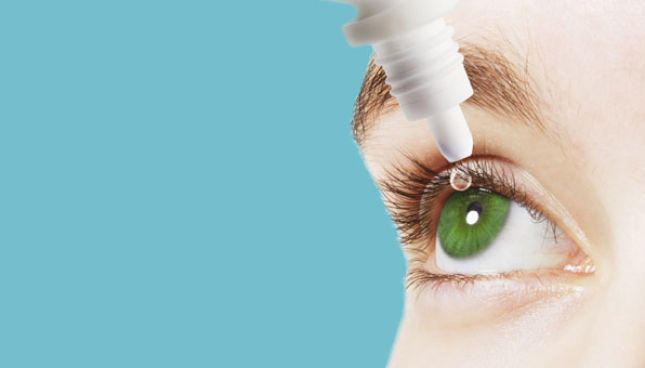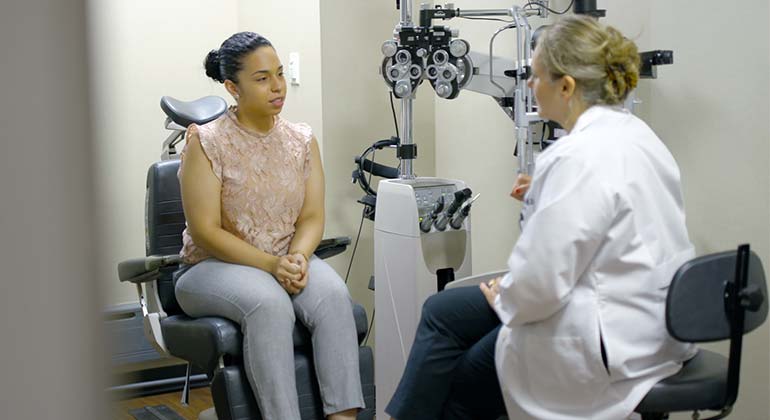Eye Doctors in Andalusia: Trusted Experts for Vision Health
Eye Doctors in Andalusia: Trusted Experts for Vision Health
Blog Article
Is Refractive Surgery Right for You? Variables to Think About for Better Eyecare
In the realm of eye treatment, the choice to go through refractive surgical treatment is a weighty one that requires thoughtful factor to consider. As individuals seek clarity and liberty from the constraints of rehabilitative lenses, numerous factors enter into play when identifying the suitability of such a treatment. From the details of one's ocular wellness to the ins and outs of daily routines and individual expectations, each aspect holds value in the more comprehensive landscape of refractive surgery candidacy. By evaluating these crucial elements with care and accuracy, a more clear course towards educated decision-making emerges.
Eye Wellness Assessment
When thinking about refractive surgical treatment, a thorough eye health analysis is important to examine the viability of the procedure for each and every person. neurologist andalusia. This examination involves a collection of examinations and evaluations carried out by an eye treatment specialist to identify the general health of the eyes, the presence of any type of underlying problems, and the security of the refractive mistake
During the analysis, various elements are taken right into account, such as the individual's medical history, current eye prescription, corneal thickness, student size, and tear film quality. These analyses assist to determine any contraindications to refractive surgical procedure, such as corneal abnormalities, cataracts, or neglected eye infections. Additionally, the analysis assists to manage individual assumptions regarding the potential end results of the surgical treatment based on their unique eye features.
Inevitably, the eye wellness examination is vital in making certain the safety and effectiveness of refractive surgical treatment, as it offers beneficial understandings right into the person's eye health and wellness status and assists determine the most suitable therapy options for achieving optimal visual outcomes. (cardiologist andalusia)
Lifestyle Assessment
A complete way of living assessment is integral in determining the suitability of refractive surgical procedure for an individual's aesthetic improvement needs. Way of living elements such as profession, hobbies, and everyday tasks play a critical role in the decision-making procedure relating to refractive surgical procedure. As an example, individuals with professions that include a high level of physical activity or exposure to environmental elements might have different aesthetic needs compared to those with inactive desk work. Comprehending just how a person's lifestyle might impact their vision post-surgery is important for managing expectations and making sure ideal results.
Moreover, way of life practices such as sports engagement, outdoor tasks, or even skin care regimens can affect the recovery procedure and total success of refractive surgery. Individuals who engage in get in touch with sporting activities might need to take added precautions to safeguard their eyes during the healing period. Furthermore, individuals with comprehensive sunlight direct exposure might need extra post-operative like avoid difficulties. By performing a detailed way of living analysis, eye treatment specialists can customize their recommendations and treatment plans to meet the unique needs of each client, eventually causing improved aesthetic end results and contentment.
Expectation Placement

Individuals need to understand that while numerous people accomplish 20/20 vision or much better following refractive surgical procedure, some might still need glasses for particular activities like reading or driving at night. Taking care of these assumptions helps protect against frustration and frustration post-surgery, leading to an extra positive overall experience for the person.
Risk Analysis

Variables that might raise the danger of complications consist of age, certain clinical conditions like autoimmune illness, unpredictable vision prescription, slim corneas, and unrealistic client expectations. Additionally, choosing a competent and seasoned cosmetic surgeon, following pre and post-operative care guidelines diligently, and divulging any type of appropriate case history can aid minimize risks.
To minimize the possibility of issues, eye doctors carry out complete pre-operative examinations to recognize any contraindications to surgical treatment. They additionally review the prospective risks and benefits with clients during the appointment procedure. By taking part in open communication and shared decision-making, both the ophthalmologist and the person can interact to figure out if refractive surgery is the ideal selection based upon specific threat profiles and desired results.
Examination Relevance
Considering the important duty of informed decision-making in evaluating threats and possible complications in refractive surgical treatment, the assessment process holds substantial relevance in assisting patients towards optimal end results. Throughout the appointment, the eye doctor assesses the client's eye health and wellness, refractive errors, and total suitability for surgical treatment. This preliminary assessment is essential in identifying the most appropriate procedure for each person, thinking about elements such as corneal density, pupil size, and existing eye problems.
Additionally, the consultation acts as a possibility for clients to discuss their assumptions, worries, and any go to this web-site kind of questions they might have regarding the surgical treatment. Clear communication between the doctor and the client is important to make certain realistic assumptions and a complete understanding of the potential dangers and advantages entailed.
Furthermore, the appointment allows the specialist to explain the different surgical choices readily available, their particular end results, and the post-operative care called for. This comprehensive discussion equips patients to make well-informed choices regarding their eye care, causing better satisfaction and results post-surgery.
Verdict
To conclude, individuals taking into consideration refractive resource surgical procedure ought to go through a thorough eye health analysis, examine their way of living habits, straighten their assumptions with possible end results, analyze the involved dangers, and focus on appointments with eye treatment specialists. These factors play an important function in establishing the viability of refractive surgical procedure for each and every person, ensuring optimal outcomes and satisfaction with the procedure.
Patients considering refractive surgery often have high expectations regarding the results, expecting best vision without the demand for glasses or contact lenses. While refractive surgery can significantly improve vision and lower reliance on aesthetic aids, it is important for clients to understand that outcomes might vary based on specific variables such as the degree of refractive error, corneal density, and general eye health and wellness.
By engaging in open interaction and shared decision-making, both the ophthalmologist and the person can function together to determine if refractive surgical procedure is the best choice based on specific danger profiles and preferred outcomes.
Taking into consideration the important function of educated decision-making in examining risks and possible problems in refractive surgery, the appointment process holds substantial significance in guiding individuals towards ideal outcomes. Throughout the consultation, the eye doctor evaluates the individual's eye health, refractive mistakes, and read what he said overall suitability for surgical procedure.
Report this page